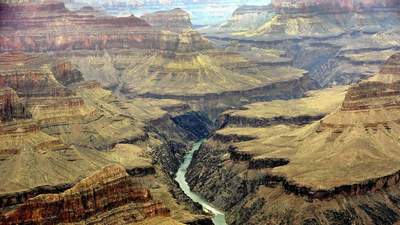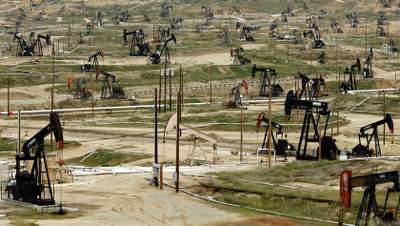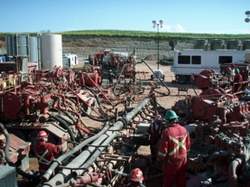Drought Drains Lake Mead to Lowest Level as Nevada Senator Calls for Government Audit

As the largest reservoir in the U.S. falls to its lowest water level in history, Nevada State Sen. Tick Segerblom introduced a bill title and issued a press release on July 8 calling for an “independent scientific and economic audit of the Bureau of Reclamation’s strategies for Colorado River management.”
Sen. Segerblom’s position represents the growing political impatience with the current management system for the river. He takes hard aim at the Bureau of Reclamation as being responsible for these problems as he says, “Reclamation may have played a major role in erecting our Colorado River infrastructure, but it’s clearly time for people across the basin to begin leading its future management.”
http://ecowatch.com/2014/07/
National Park Service calls development plans a threat to Grand Canyon
 Generations of park managers have tried to preserve that natural vista, but officials here say a proposed development would alter the view.
Generations of park managers have tried to preserve that natural vista, but officials here say a proposed development would alter the view.
Looking eastward from the canyon’s popular South Rim, visitors could soon see a hive of construction as workers build restaurants, hotels and shops on a distant mesa on the Navajo Indian reservation.
The developers also plan a gondola ride from those attractions to whisk tourists to the canyon floor, where they would stroll along an elevated riverside walkway to a restaurant at the confluence of the Colorado and Little Colorado rivers.
http://www.latimes.com/nation/
U.S. Seen as Biggest Oil Producer After Overtaking Saudi Arabia
 The U.S. will remain the world’s biggest oil producer this year after overtaking Saudi Arabia and Russia as extraction of energy from shale rock spurs the nation’s economic recovery, Bank of America Corp. said.
The U.S. will remain the world’s biggest oil producer this year after overtaking Saudi Arabia and Russia as extraction of energy from shale rock spurs the nation’s economic recovery, Bank of America Corp. said.
U.S. production of crude oil, along with liquids separated from natural gas, surpassed all other countries this year with daily output exceeding 11 million barrels in the first quarter, the bank said in a report today. The country became the world’s largest natural gas producer in 2010. The International Energy Agency said in June that the U.S. was the biggest producer of oil and natural gas liquids.
Why trading water futures could be in our future
Water demand for energy could increase by about a third in the period between 2010 and 2035, with non-OECD countries accounting for 90 percent of the growth. The OECD projects fresh water will be increasingly strained with an additional 2.3 billion people living in areas that are highly water stressed, like North and South Africa and South and Central Asia, by 2050.
At the same time, the U.N. paper notes that climate change is impacting surface water, and dry regions should get drier while wet regions will get wetter. The U.N. notes there’s also evidence groundwater supplies are diminishing, with an estimated 20 percent of world aquifers overused. Groundwater abstraction is increasing at a rate of 1 percent to 2 percent a year.
http://www.cnbc.com/id/
Caribbean coral reefs ‘could vanish in 20 years’
New study shows Indonesia’s disastrous deforestation
 Paris (AFP) – Satellite images have found that Indonesia’s ancient forests, a cradle of biodiversity and a buffer against climate change, have shrunk much faster than thought, scientists said on Sunday.
Paris (AFP) – Satellite images have found that Indonesia’s ancient forests, a cradle of biodiversity and a buffer against climate change, have shrunk much faster than thought, scientists said on Sunday.
Leaky Methane Makes Natural Gas Bad for Global Warming

Natural gas fields globally may be leaking enough methane, a potent greenhouse gas, to make the fuel as polluting as coal for the climate over the next few decades, according to a pair of studies published last week…. An even worse finding for the United States in terms of greenhouse gases is that some of its oil and gas fields are emitting more methane than the industry does, on average, in the rest of the world, the research suggests.
U.S. Moves Toward Easing A Ban On Exporting Its Oil
A U.S. ban on exporting crude oil that has stood for nearly 40 years could be eased a bit this summer, as the Obama administration is seen clearing a path for American companies to export the first shipments of unrefined oil in decades.









